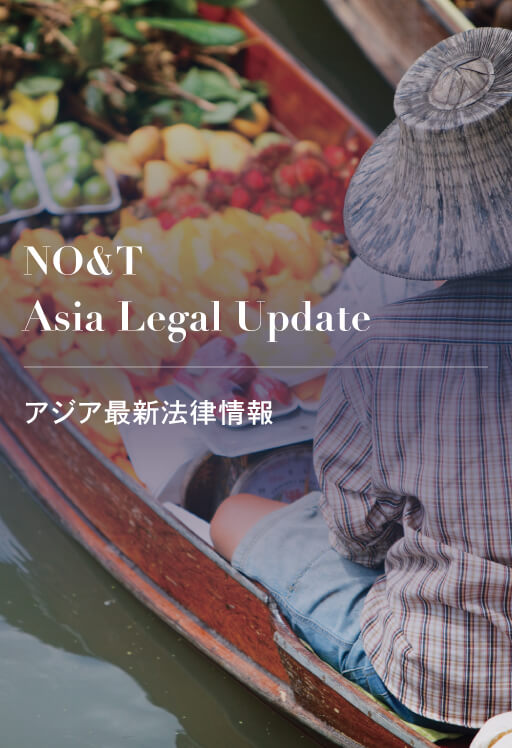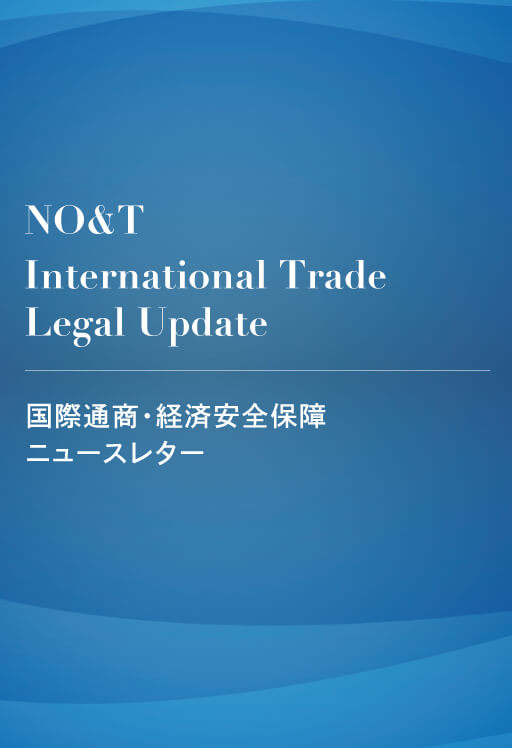
NO&T Japan Legal Update
英文
In light of the current conflict between Russia and Ukraine, the Japanese government has implemented various economic sanctions against Russia based on the Foreign Exchange and Foreign Trade Act of Japan (the “Foreign Exchange Act”). Japan’s economic sanctions have been implemented in concert with many western industrialized countries and regions (such as the US, the EU and the UK), and consist of, among others, import/export restrictions, the freezing of assets of certain individuals and entities, and a prohibition on issuing or circulating certain securities.
This article outlines the sanctions against Russia introduced by the Japanese government up to March 21, 2022.
On February 26, March 1, March 3, and March 8, 2022, the Cabinet of Japan approved the introduction and expansion of export prohibitions under the Foreign Exchange Act. Based on those approvals, the Export Trade Control Order (subordinate legislation of the Foreign Exchange Act) was amended with effect as of March 18, 2022. Under the amended Export Trade Control Order, the following exports are generally prohibited unless an export license is granted※1:
Under the Import Trade Control Order (subordinate legislation of the Foreign Exchange Act) and a related government notice, it is prohibited to import goods originating from Donetsk and Luhansk as of February 26, 2022.
The Japanese government has also applied asset freezing measures to certain designated individuals and entities related to Russia, Belarus, or Donetsk and Luhansk. The list of designated individuals and entities has been expanded several times since first being published on February 26, 2022. Since then the following entities and individuals have been newly designated (“Sanctioned Parties”):
Under the asset freezing measures, the following acts may not be carried vis-à-vis the Sanctioned Parties unless with permission by the Japanese government (provided that the prohibitions will become effective only as of March 28, 2022):
In addition to the measures mentioned above, the following economic measures have also been imposed by the Japanese government:
Certain designated Russian banks are prohibited from issuing or offering securities in Japan with a maturity over 30 days.
The Japanese economic sanctions are based on a complex system of subordinate legislation and governmental notices under the Foreign Exchange Act. The sanctions have been constantly amended and tightened almost on a daily basis. Depending on how the situation will develop, additional sanctions against Russia in alignment with Western countries can be expected. Businesses operating in Japan would be well-advised to keep abreast of any new developments and how the current and future economic sanctions may affect their business.
*1
According to guidance published by the Japanese government, such exports are, in principle, not permitted except for certain exceptional cases, such as (i) export of foods and medicines, consumer communication equipment, and communications infrastructure for the private sector, (ii) export for the purpose of providing human aid , ensuring cyber security, ensuring the safety of the oceans, (iii) exports between governments, and (iv) where the final user is an entity whose shares are entirely held by persons in Japan or certain western countries.
This newsletter is given as general information for reference purposes only and therefore does not constitute our firm’s legal advice. Any opinion stated in this newsletter is a personal view of the author(s) and not our firm’s official view. For any specific matter or legal issue, please do not rely on this newsletter but make sure to consult a legal adviser. We would be delighted to answer your questions, if any.


(2025年4月)
若江悠


若江悠


(2024年9月)
Roku(鹿) Haseru


塚本宏达、福原步美、近藤亮作(共著)